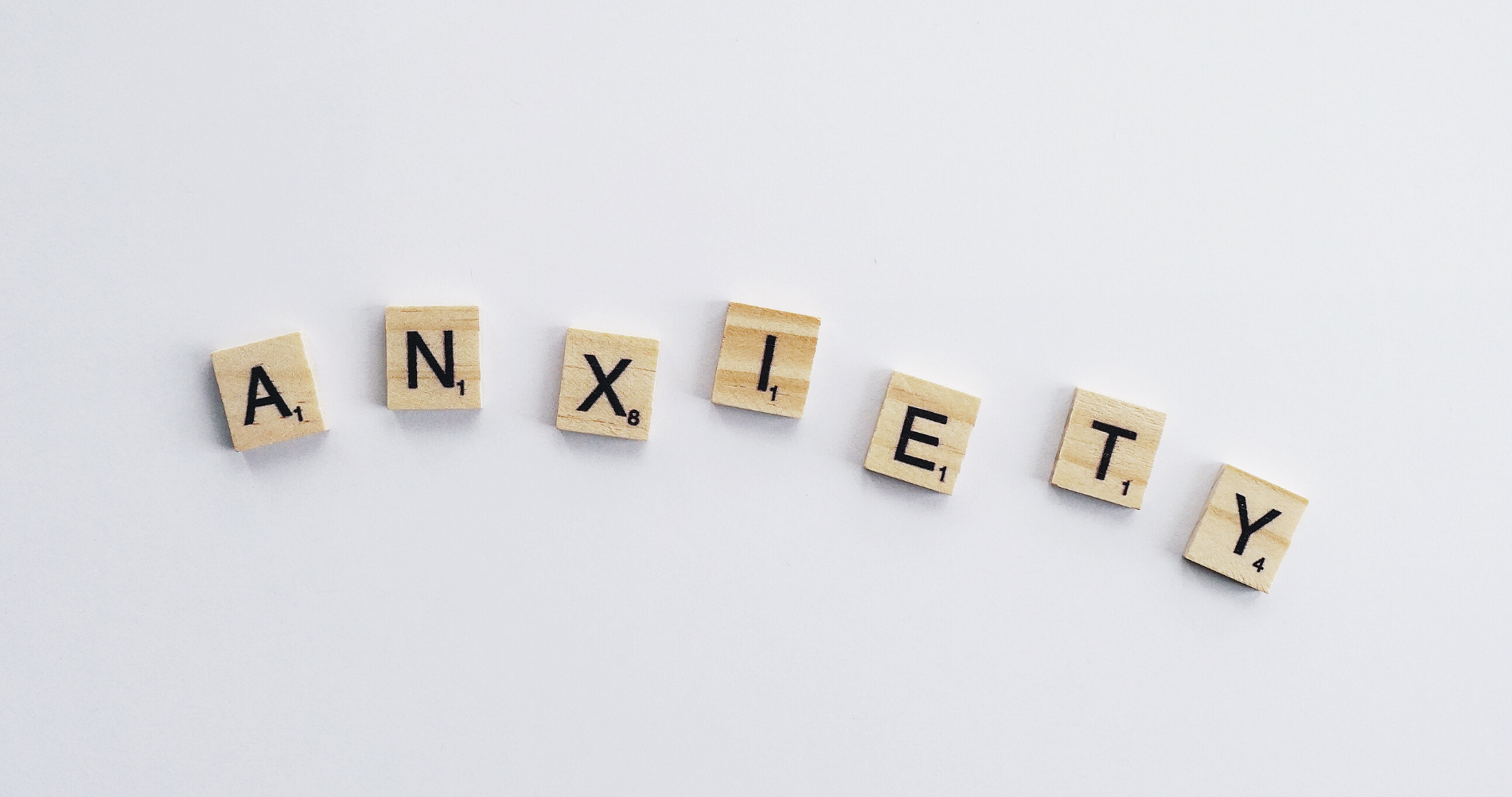
Imagine laying in bed, just about to drift to sleep when you remember that you forgot to update your company’s website with fresh content and there’s a company meeting in the morning where you know your boss is going to ask you about it. You sit up, panicking, anxiety filling you and quickly grab your laptop to finish the work at… midnight.
This is not a new scenario for you; actually, you’ve had this happen to you a lot recently. Your work anxiety is causing you to stress more, lose sleep and make you more reactive than proactive.
If you’re suffering from anxiety, you are not alone. Recent studies have shown 30% of millennials have reported anxiety; this is far higher than previous generations.
Anxiety can take many forms, from feeling like you are struggling to balance your work and home life to feeling anxious about the quality and quantity of your work. It can also contribute to your worries about making the right career decision. Did you take the right job or should you have taken that internship opportunity that may have led to a better career? Or are you doubting yourself and your ability because you have received yet another job rejection? These thoughts may lead you to stress about your work and prevent you from moving forward.
So, how do you manage your career anxiety and stop it from hurting your career even more? Well, good thing you asked.
Here are 5 ways to manage your work anxiety and get your peace of mind back.
1. Power Pose & Powerful Thinking
A couple of years back, there was a viral Ted Talk about the science behind the power pose. What is a power pose, you ask? It’s where you stand with your feet apart, and hands-on your hips and chest up, and you do this for two minutes. It can supposedly give you the confidence needed to help you visualise success and minimise worrying thoughts.
Though the pose is no quick-fix to success, it does play a bit of a mental trick on your mind when you’re anxious. It convinces you that this particular pose will help you be more confident in your ability and because of that, you feel it. The brain is powerful, so this psychological trick can help you feel more confident and less anxious about your work. Even if the pose doesn’t work the short break, while trying it, can help take your mind off your work for a few minutes and allow you to relax.
Powerful thinking
To go along with your power pose is powerful thinking. Learning how to be mentally stronger can contribute to you being more confident and less afraid of new work challenges that come your way. It can also help reduce your work anxiety, depression, and fear of failure.
Mental strength is very similar to physical strength; you need to put in the time and effort to develop it, the same way you have to train to build yourself physically. However, mental strength is just as important, if not more so, than physical strength. It can help you perform at peak levels, regulate your emotions, and help you build the resilience to deal with everyday stress in both your work and personal life. We recommend this video that could help you to learn more about “The secrets of mental strength.”
So, how does one build up their mental strength? You can start by training yourself to think positively and work on identifying and then trying to remove negative thoughts when they begin to creep into your mind. Another way is to set realistic goals for yourself and celebrate them when you achieve them.
Take a break and be proud of what you have completed before starting the next task, ignoring your achievements can lead to you feeling like you have accomplished nothing and increase your work anxiety. Learn how to control your emotions rather than letting them control you. Last but not least, take positive actions and be committed to working on yourself and your mental strength daily. In the end, a stronger mentality can help you better manage and even overcome your anxiety at work while helping you build the confidence to pursue further career opportunities.
2. Make exercise your friend.
Now I know that doesn’t sound like fun, but hear me out. One of the best ways to manage your work anxiety is to step away from it all. How can you do that? Exercise is one way. If you are running, dancing, or practising yoga moves, you will channel your energy into that thereby “turning off your brain”. You’ll focus on the exercise rather than your work.
More so, exercising not only keeps your body healthy, but it can also help you control your breathing, reduce your stress, and prevent you from getting sick as often. Exercising doesn’t need to be time-consuming. You can do breathing exercises for just a few minutes to help you relieve stress and anxiety. There are also many short online exercise videos that you can do; these are perfect as a short ten to fifteen-minute break from work, especially if you are currently working from home.
Exercising can also help boost your mood as well, which will, in turn, help lower your anxiety and depression if you are having a bad day. As Elle Woods said in “Legally Blonde” exercise gives you endorphins and endorphins makes you feel happy, therefore helping you better manage your stress levels at work!
3. Learn that you can’t control everything.
In an ideal world, being able to manage everything would be nice. Unfortunately, that isn’t possible. Trying to control every aspect of your work can harm your performance and contribute to your work anxiety. Examples of control at work can be trying to micromanage a team project because you fear others may do it incorrectly or not speaking up in team meetings as you are afraid of saying the wrong thing or even spending your time rereading an email over and over to try and make it “perfect”.
Though they may not sound like typical examples of control, they serve as a representation of you trying to control other people’s perceptions of you. In reality, however, doing these things can be unhealthy for your mental health and affect your quality of work while also increasing your anxiety in the future.
So how do you stop? You start by learning to acknowledge that you can’t control everything. That you have to just let go sometimes of your fear of failure. Practice controlling your emotions rather than trying to control everything around you. Work on accepting that not everything will happen like you may have planned and learn how to be okay with it. Once you do, you’ll find your work anxiety will go down, and you will relieve some of the pressure you put on yourself. This can lead to greater peace of mind in and out of work.
4. Limit on the coffee
Hey, we all love a great cup of coffee in the morning. It can help us feel like we are starting our days off right. However, having too much coffee can contribute to our anxiety and make it worse. Since caffeine is a stimulant, having too much of it can trigger anxiety-like symptoms like nervousness, restlessness, trouble sleeping, indigestion, and a fast heart rate.
If you are someone who already struggles with anxiety, drinking a lot of coffee will only add to it. So, try to chill out on the double espresso drinks and switch to decaf or herbal teas.
We aren’t suggesting that you quit cold turkey because this can lead to withdrawal symptoms like headaches, anxiety, and bad moods. Instead, try easing your caffeine intake slowly and evaluate whether it helps reduce your work anxiety.
By doing little things like limiting your caffeine intake, you are actively working on managing the anxiety you feel at work and your workload.
5. Face Your Anxiety Head-on
If you know your anxiety is hindering you in your job, or when you go for interviews, then start by trying to see what you can do to ease your stress. Spend some time trying to identify what you’re anxious about – is it the fear of public speaking? Consider attending free public speaking classes, reading books on overcoming your anxiety, or watching TED talks about public speaking. Or is it the fear of asking stupid questions? When you’re new to the job, the pressure to give off a great first impression can prevent you from wanting to ask questions about your projects. If you fear asking your employer questions, consider trying to find the answer yourself or going to a co-worker you feel comfortable talking with.
If you feel your anxiety is too much for you to handle, consider speaking to a professional. Sometimes having someone there, dedicated to hearing out all your concerns and who can provide you with advice and guidance, can help you deal with your anxiety and find a way to manage it. Overall, face your work anxiety head-on so you can learn how to manage it better and live a happy, healthier life inside and outside of work.
Final Thoughts
As new graduates on the brink of their career or even in the first year of work, it is not uncommon to feel anxiety towards your work. However, it is essential to manage your anxiety as it may prevent you from taking future opportunities and lead to more stress in the future as you take on greater responsibility as you progress in your career. So, take some time for yourself and work on becoming mentally stronger so you can be resilient and effectively manage your work anxiety.
Go for a walk or take a yoga break to give your mind and body a rest. Learn that you can’t control everything and focus on rewarding yourself for your achievements at work. Switch up your usual 6 cups of coffee a day to maybe only 3 cups and some decaf tea and finally, don’t let your work anxiety control you or your career. It won’t happen overnight, but trying to work on each of these areas can and will help you better manage your anxiety at work.
Related Articles
Don’t forget to share this post!



